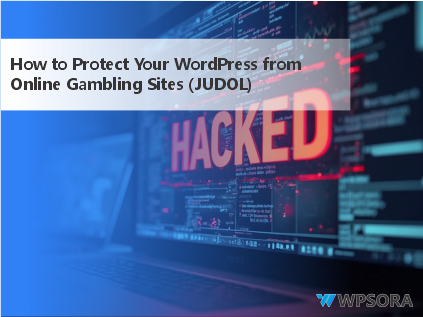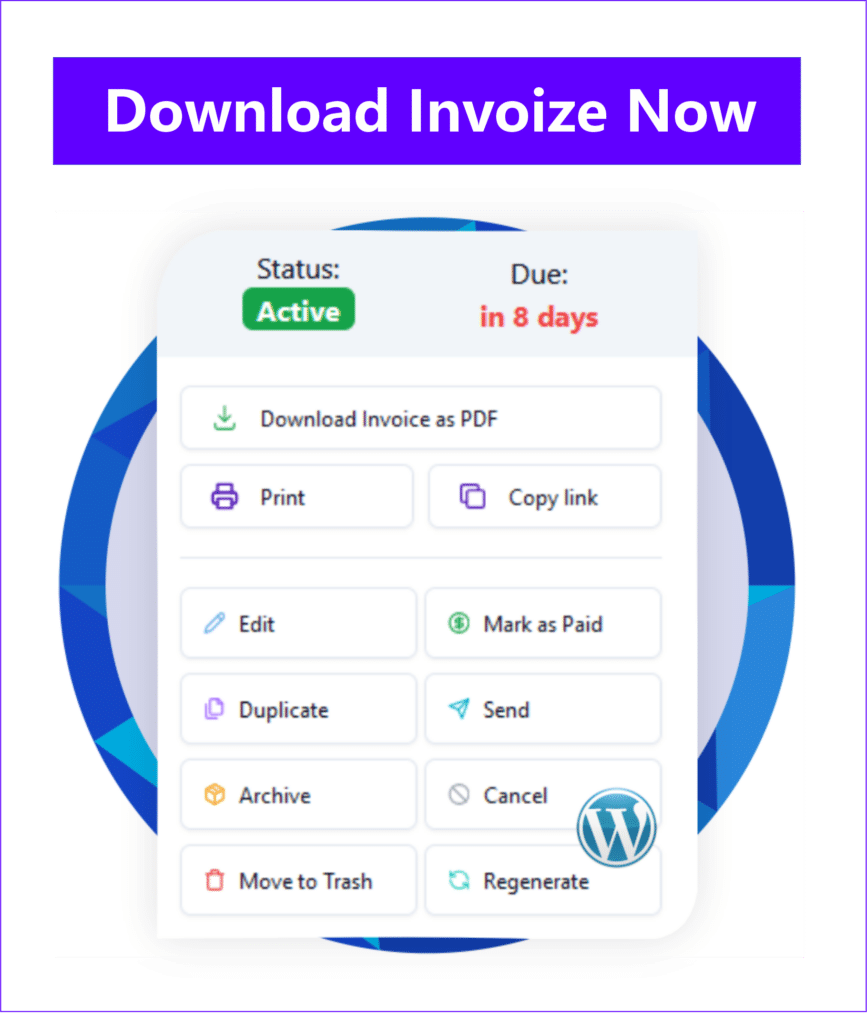Table of Contents


The rise of hackers originating from online gambling sites, commonly known as JUDOL (Judi Online), has become a significant threat to websites, particularly in Indonesia. These hackers target websites with high Domain Authority (DA) and weak security measures, exploiting vulnerabilities to insert malicious backlinks and even hijack the site entirely. They are skilled in various hacking techniques and often target popular platforms like Open Journal Systems (OJS) and WordPress.
Introducing Gambling Site Hackers from Indonesia
In recent years, Indonesia has seen a surge in cybercrime activities linked to online gambling sites, commonly known as JUDOL (Judi Online). These hackers operate with one primary goal: to exploit vulnerable websites for financial gain by embedding backlinks or malicious code. Their tactics range from sophisticated hacking techniques to brute-force attacks, often targeting popular platforms like WordPress and Open Journal Systems (OJS). These hackers are not just individuals but highly organized groups working systematically to manipulate the web in favor of illegal online gambling.
What is JUDOL in Indonesia?
JUDOL refers to the illegal online gambling activities that persist in Indonesia despite strict legal restrictions. Gambling in all its forms is prohibited under Indonesian law, but these operators continue to flourish in the digital underground. They promote various types of gambling, including sports betting, online casinos, and lottery systems, targeting Indonesian users through online platforms. To drive traffic to their sites, they often resort to unethical means like hacking legitimate websites, making JUDOL a serious threat in the digital landscape.
Why is JUDOL So Disturbing in Indonesia?
JUDOL is particularly disturbing in Indonesia due to its widespread impact on the internet ecosystem. These illegal operators don’t just run their sites; they invade other websites by embedding hidden backlinks or malicious scripts that can harm a website’s reputation and SEO performance. In some cases, these hackers take control of websites, using them to promote gambling activities, which is not only illegal but also damaging to the victim sites. Many organizations and businesses in Indonesia have fallen victim to such attacks, losing credibility and traffic as a result.
Why Are JUDOL Hackers So Massive in Indonesia?
The scale of JUDOL hackers in Indonesia is alarming. Several factors contribute to this, including the large population of internet users, the lucrative nature of the gambling industry, and the relative ease with which hackers can exploit poorly secured websites. Many small to mid-sized websites in Indonesia lack advanced cybersecurity measures, making them easy prey for these cybercriminals. The financial incentives for hackers are high—by boosting the SEO and traffic of illegal gambling sites, they help these platforms generate significant revenue, making it worth the effort.
JUDOL hackers are relentless because the rewards far outweigh the risks. The anonymous nature of the internet, coupled with weak cybersecurity in many parts of Indonesia, allows these hackers to operate with little fear of legal consequences. Their teams are large and well-organized, often functioning like professional networks, constantly sharing tactics and developing new ways to evade detection. The illegal gambling industry is incredibly profitable, and the more traffic they generate, the more money they make. This financial motivation ensures that their efforts continue, with new hackers joining their ranks regularly to expand their operations.
Many websites, especially those running on OJS and WordPress, have fallen victim to these attacks, and it’s critical to understand how to protect your WordPress site from this growing threat. In this article, I will provide actionable tips to safeguard your WordPress site and prevent it from being compromised by these malicious actors.
Steps to Protect Your WordPress Site
- Change the Default WordPress Login URL One of the first things you should do is change the default login URL for your WordPress site. By default, WordPress uses “wp-login.php” or “/wp-admin” for the login page, which is well-known to hackers. By changing this URL to something unique, you can significantly reduce the risk of brute force attacks on your login page.
- Disable User Registration and Forgot Password If your website doesn’t require user registration, it’s wise to disable this feature. The registration form can be an entry point for hackers trying to gain unauthorized access. Additionally, disabling the “forgot password” function for user accounts that are not necessary can prevent unauthorized password resets.
- Disable XML-RPC XML-RPC is a feature in WordPress that allows for remote connections, including publishing content remotely. However, it’s often used as a vector for brute force attacks. Disabling XML-RPC is an effective way to reduce vulnerabilities related to remote access.
- Use Security Plugins Like Wordfence WordPress security plugins such as Wordfence are invaluable for protecting your site from a variety of attacks. Wordfence offers a robust firewall, malware scanning, and protection against brute force attacks. It also provides alerts for any suspicious activity.
- Install an Anti-Brute Force Plugin Brute force attacks involve hackers trying numerous username-password combinations until they gain access. Installing a plugin dedicated to preventing brute force attacks can help block IPs after a certain number of failed login attempts and significantly improve your site’s defense.
- Backup, Backup, and More Backup! The importance of regular backups cannot be overstated. If your site is compromised, having backups will allow you to quickly restore it to its previous state. Ensure you have both internal backups (stored within your hosting environment) and external backups (stored in a cloud service or on another server) for redundancy.
- Regularly Update Your Themes and Plugins Themes and plugins are often the weakest links in a WordPress site’s security, especially if they are outdated. Developers release updates not only to add features but also to patch security vulnerabilities. Keeping your themes and plugins up-to-date is crucial for protecting your site from attacks.
- Stay Informed About Vulnerabilities in the Plugins and Themes You Use Whether you’re using free or premium themes and plugins, it’s essential to stay informed about potential security issues. Sometimes even the most trusted plugins can develop vulnerabilities. Monitor security updates and act promptly when patches are available.
- Update WordPress Core Regularly WordPress core updates are critical not just for new features but for security fixes. Ensure that your WordPress installation is always up-to-date to protect against the latest security threats.
- Avoid Using Nulled Themes and Plugins Nulled themes and plugins—pirated versions of premium products—often come with hidden malware or backdoors. Even if they seem functional at first, they can open up your site to hackers. Always use legitimate, legal themes and plugins to ensure your site’s security.
Server-Side Security Measures
- Keep Your Server’s Control Panel and Operating System Updated Server vulnerabilities can be just as dangerous as site-level vulnerabilities. It’s vital to regularly update the control panel, OS, and any server management tools you use. This will help keep your environment secure.
- Implement ModSecurity and CSF (ConfigServer Security & Firewall) ModSecurity is an open-source web application firewall (WAF). It helps stop attacks before they reach your site. CSF (ConfigServer Security & Firewall) adds another layer of protection by blocking malicious traffic and alerting you to potential threats.
- Install Antivirus, Anti-Malware, and Anti-Trojan Software on Admin Devices Your personal computer or laptop is vital for your security. Installing antivirus, anti-malware, and anti-trojan software protects it from threats. This prevents security risks.
- Be Aware of Phishing Attempts Phishing attacks are one of the most common ways hackers gain access to sensitive data. Always be cautious when receiving suspicious emails, especially those requesting sensitive information or login credentials.
- Regularly Update Your Browser An outdated browser can be a security risk. Make sure to keep your browser updated to prevent vulnerabilities that could be exploited by malicious sites.
- Avoid Visiting Suspicious Websites Only use your web browser on trusted websites. This is vital for devices that manage your WordPress site. Visiting sketchy sites can expose your computer to malware, which could in turn affect your site’s security.
- Use a Dedicated Browser for Web Management and Online Banking Use a separate browser for web management, online banking, and payments. It’s highly recommended. Avoid mixing it with the browser used for casual browsing to reduce exposure to threats.
If You Use cPanel
- Regularly Update cPanel Just like WordPress and server software, it’s important to keep cPanel updated to the latest version. Updates often include security patches that protect your hosting environment. You can do this at your WHM Server configuration.
- Enable Leech and Hotlink Protectionc Panel has features like leech and hotlink protection. They help prevent unauthorized logins and stop others from using your site’s resources without permission.
These are just some of the tips I’ve learned from securing hundreds of WordPress and OJS websites. These steps will greatly reduce the risk of hackers from online gambling sites (JUDOL) compromising your site. We appreciate your attention to this matter and encourage you to take these precautions to help keep your site safe.
Conclusion
The threat of hackers, particularly from JUDOL, is very real and growing, especially for WordPress websites in Indonesia. However, by following the security measures outlined above, you can safeguard your site against these threats. Remember, website security is an ongoing responsibility that requires continuous attention and proactive measures. Regular updates, backups, and vigilance are key to maintaining the integrity of your site.
We understand that no system can guarantee complete safety. However, by following these steps, you can significantly boost your WordPress site’s security. This will help keep your data and content safe from unwanted access.
Author
-
Hello! I'm Ghazi, im head of marketing wpsora. Have a passion for SEO things,linux,wordpress thing, i like helping solve publisher problems related to the use of wordpress
View all posts




